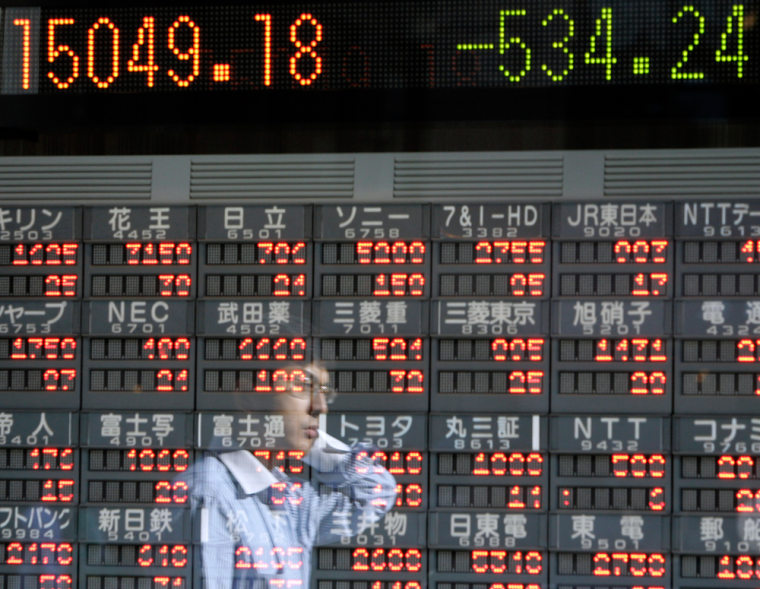Asian markets fell sharply Monday after Wall Street declined at the end of last week on renewed concerns about U.S. mortgage problems. European markets, however, were mixed in early morning trade.
“Basically, the subprime loan issue still drags on, and there is no prospect of what can end the problem,” said Shinichi Ichikawa, chief strategist at Credit Suisse of the falls in Asian markets.
Major banks warned last week of further losses in their debt portfolios, raising investor concerns that the credit market slump isn’t abating.
Japan’s benchmark Nikkei 225 index fell 2.5 percent, and Hong Kong’s Hang Seng dropped 3.9 percent. In South Korea, the Korea Composite Stock Price Index, or Kospi, fell 3.4 percent.
Both the Hang Seng and the Kospi fell more than 4 percent during intraday trade, and the Nikkei dipped below 15,000 points for the first time since July 2006.
In Europe, the U.K.’s benchmark FTSE-100 index was up 0.2 percent at 6,314.30, after briefly dipping into the red as a fire in east London sent a towering column of black smoke over the capital. Police said there was nothing to suggest a suspicious cause.
France’s CAC-40 slipped 0.3 percent to 5,506.78 and Germany’s DAX declined 0.3 percent to 7,786.
In the U.S., stock futures were lower as investors brace for potentially more bad news from some of the nation’s banks. On Friday, the Dow Jones industrial average fell 1.7 percent to 13,042.7.
“As for the U.S. economy, the risk of recession is increasing toward the next year amid the lingering subprime loan problems,” which, combined with higher oil prices, prompted players to sell the dollar, Ichikawa said.
Japanese traders sold exporter issues on the strengthening yen, which is at its highest levels against the dollar in 18 months.
Automaker Honda Motor Co. fell 3.6 percent and rival Toyota Motor Corp. shed 2.8 percent. Sony Corp. dropped 2.6 percent.
A stronger yen makes the exporters’ goods less competitive overseas and cuts into their foreign earnings.
In Hong Kong, bank HSBC shed 2.8 percent on subprime exposure woes.
Chinese financial shares were also lower after China’s central bank raised the reserve requirement for banks by 50 basis points to 13.5 percent at the weekend in another of its money-tightening measures.
Bank of China fell 3.9 percent. China Construction Bank fell 4.4 percent. ICBC fell 5.0 percent.
In other Asian markets, shares tumbled as well. The Shanghai composite index lost 2.4 percent amid unconfirmed rumors the China Securities Regulatory Commission recently ordered funds to hold off on aggressive buying.
The benchmark indices lost ground in Australia, the Philippines, Taiwan and Thailand.
The dollar was trading at 110.41 yen at 4:50 p.m. (0750 GMT) Monday, down from 110.07 yen late Friday in New York. The euro fell to $1.4646 from $1.4673.
On Friday, the Dow Jones industrial average fell 1.7 percent to 13,042.7.
